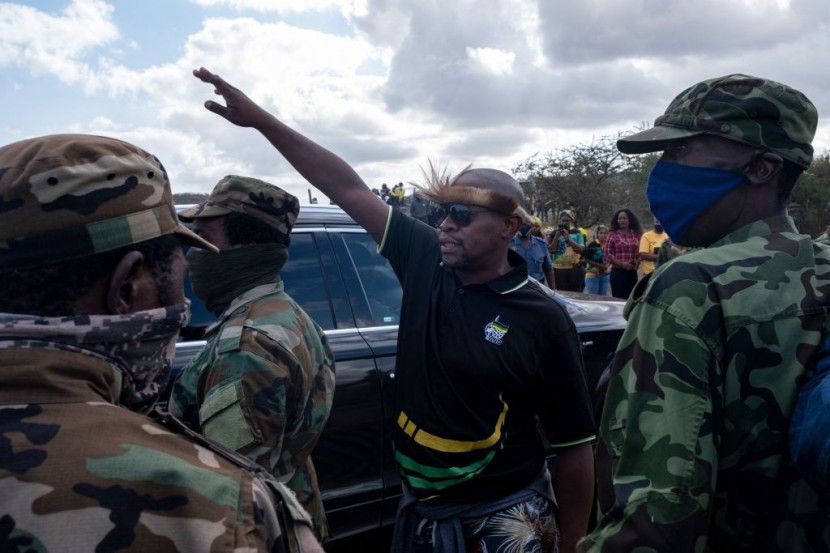The former President's detention is being seen as a litmus test for the post-apartheid country's capacity to apply the law equitably, even in the face of strong leaders.

South Africa Former President Zuma Handed Himself to the Authorities
In a recently published article in NBC News, the intermittent pro-Zuma demonstrations that erupted after he turned himself over last week soon escalated into theft and burning, mostly in KwaZulu-Natal but also in Gauteng, home to Johannesburg.
Zuma, 79, was convicted late last month for disobeying a constitutional court order to testify at a high-level corruption investigation during his nine years in government, which ended in 2018, according to MSN News.
South Africa former president denied any wrongdoing and refused to assist with authorities looking into accusations that he enabled three Indian-born businessmen - Atul, Ajay, and Rajesh Gupta - to steal public funds and influence policy.
Meanwhile, in a virtual hearing on Monday, Zuma's counsel asked the constitutional court to rescind his jail term, citing a rule that judgments can be reconsidered if made in the absence of the affected person or containing a patent error. But legal experts say Zuma's chances of success are slim.
He was briefly imprisoned by South Africa's pre-1994 white-minority authorities for his attempts to make all people equal before the law, but his image has already been tainted by a series of corruption and sleaze scandals, according to many.
Military Forces were Deployed to Stop the Unrest in South Africa
In a recently published article in Yahoo News, South African President Cyril Ramaphosa called in the military on Monday to put down violent demonstrations and looting that erupted after former President Jacob Zuma was imprisoned.
Since Zuma, who served as president from 2008 to 2018, handed himself in to police last week, at least six people have died and 500 have been detained. On Monday night, Ramaphosa declared that military troops had been deployed in Gauteng and KwaZulu-Natal, Zuma's home province.
Ramaphosa said, "We will not hesitate to arrest and prosecute those who perpetrate these actions and ensure they face the full might of the law," according to a recently published news article in Reuters.
Protesters marched through the streets of Johannesburg on Sunday, armed with sticks, branches, and other blunt items. Supporters of Zuma believe that he is the victim of a political witch hunt orchestrated by Ramaphosa's supporters.
President Ramaphosa Extended the Country's Lockdown
Ramaphosa delivered his speech one day after extending the country's lockdown for another two weeks. He called the looting sprees and street violence that followed "opportunistic acts of crime," BBC News reported.
Liquor stores, as well as outlets of businesses like pharmacy company Clicks and food merchants, Pick n Pay and Shoprite, were among those impacted since the sale of alcohol is now prohibited due toCovid-19 regulations intended to relieve strain on hospitals.
However, the ruling African National Congress (ANC) warned on Monday that the poor will suffer the brunt of the damage, citing the disruption of vital public services and the loss of numerous small enterprises.








